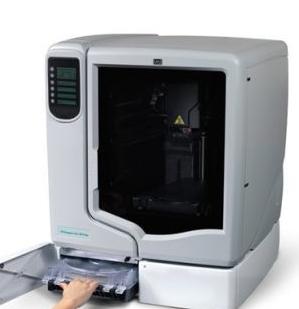 The application of 3D Printing technology has infiltrated many industries such as biomedical, aerospace, automotive, and industrial design. What benefits will the 3D printing technology bring to instrument manufacturing and whether it will “subvert†the current instrument manufacturing model? Currently, domestically Has the instrument manufacturer used this technology?
The application of 3D Printing technology has infiltrated many industries such as biomedical, aerospace, automotive, and industrial design. What benefits will the 3D printing technology bring to instrument manufacturing and whether it will “subvert†the current instrument manufacturing model? Currently, domestically Has the instrument manufacturer used this technology? Researcher Yafeng Guan of Dalian Institute of Chemistry, which has been engaged in the research and development of instruments for many years, told us that his research group purchased a 3D printer from the United States in 2011, mainly for the production of spare parts and instrument housings. Talking about the benefits of 3D printers, Guan Yafeng said, “With 3D printers, I can now quickly turn ideas into reality. A spare parts module can be produced in as few as 24 hours, and the development cycle is greatly accelerated. In addition, instrument research and development, some parts because of the small amount of difficulty to find a processing plant, the use of 3D printer can solve this problem."
However, Guan Yafeng also said, "At present, 3D printers are not yet practical for mass production. The cost is too high. The price of the printer itself is relatively high. The mid-end is about $100,000 and the high-end is $200,000. The raw materials also need to be imported. Taking an ordinary spare part of an instrument as an example, if the traditional mold processing cost is 100 yuan, and the cost of the 3D printer is 3,000 yuan, the 3D printer is mainly used in instrument development and prototype production.
Guan Yafeng also revealed that currently his group of 3D printers can only produce plastic modules. Wuhan Huazhong University of Science and Technology has developed a 3D printer that can produce metal parts. What he most wants to have is a printer that can make ceramic parts. â€
At present, all manufacturers do not use 3D printing technology. Chen Jiangang, general manager of Shanghai Spectral Instrument Co., Ltd., said: “With regard to 3D printing technology, the company plans to purchase a 3D printer in a major instrument development project approved by Shanghai Spectroscopy, but it is still in the early stage of understanding and research.†For the popularity of this technology, he believes that 3D printing technology can only be used for early research and development, and the current instrument manufacturers for the price of 3D printers and raw materials is still not acceptable.
Competitive price black anodize cnc turning parts from China factory. it is the process for cnc turning machining. Applicable Material---Aluminum/zinc alloy, iron, steel alloy, plastic, brass, steel, and stainless steel. Surface treatment---polishing, zinc plating, nickel plating, chrome plating, anodizing.
Black Anodized Cnc Parts,Anodized Cnc Parts,Cnc Machining Anodize Parts
Chongqing Jin Te Rui Machine Co.,Ltd , https://www.cncjtr.com